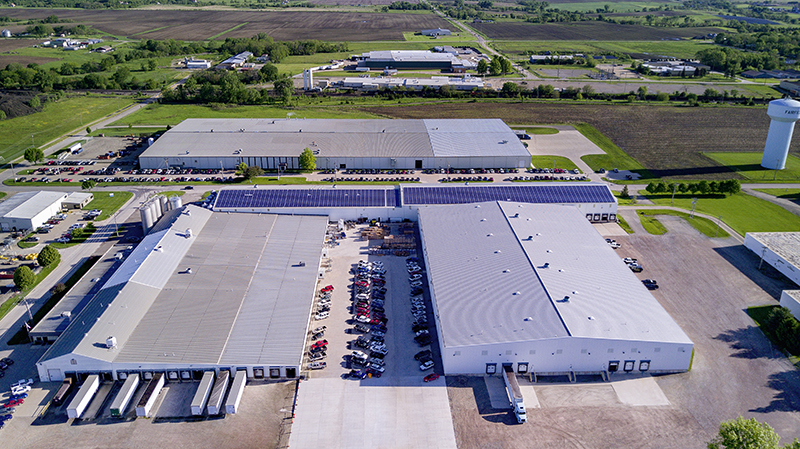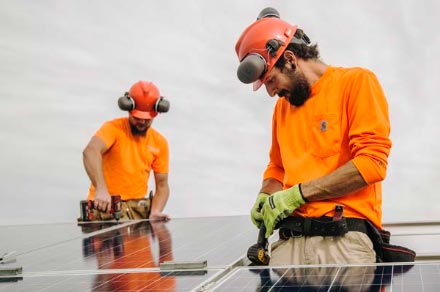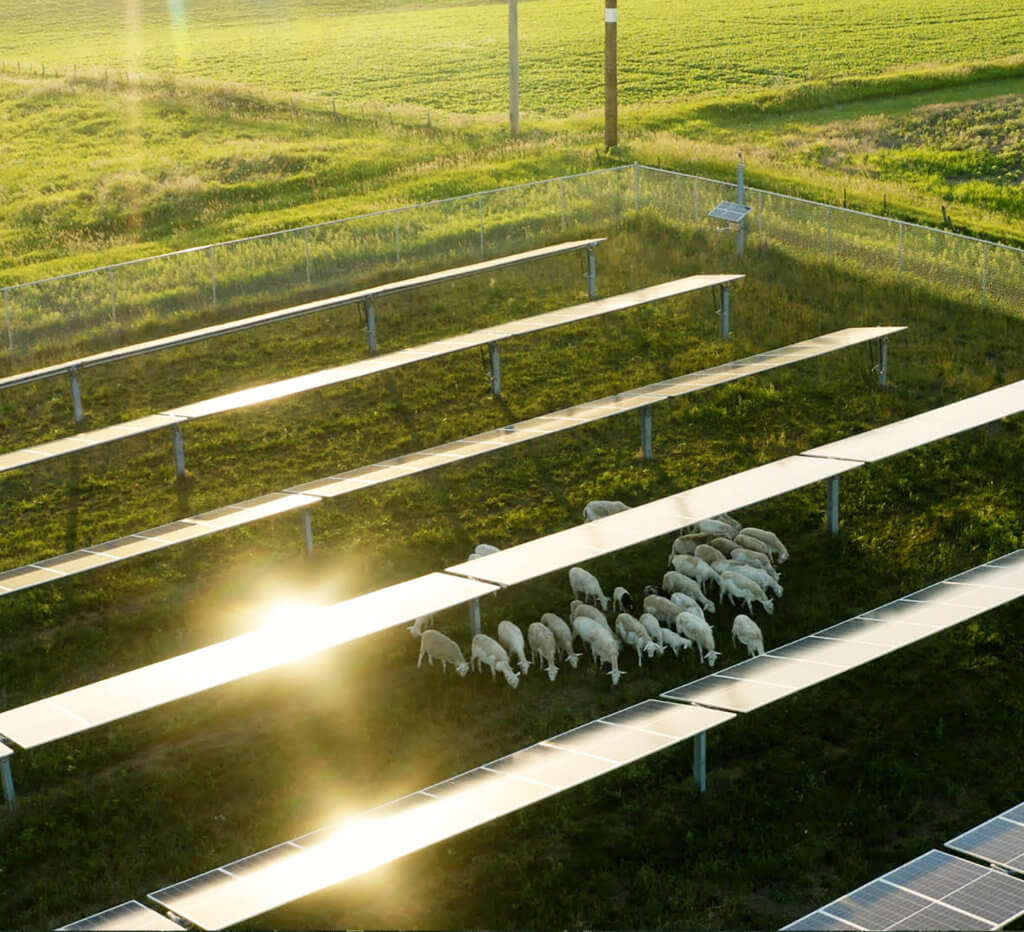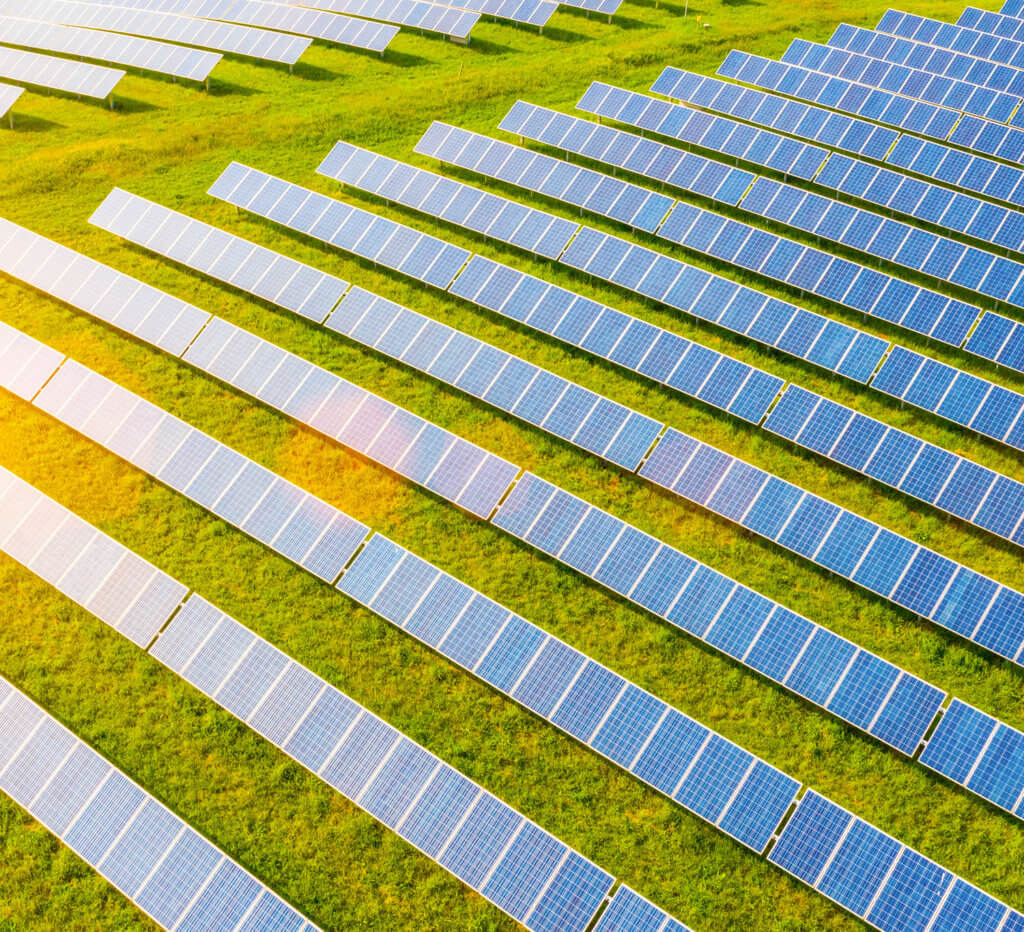The Ideal Newsroom | 10.31.2019
Iowa manufacturer gains strategic advantage with state’s first peak shaving power plant featuring solar and Tesla Powerpack
FAIRFIELD, Iowa, Oct. 31, 2019 – Agri-Industrial Plastics Company, an advanced manufacturing operation specializing in industrial blow molding, inaugurated Iowa’s first solar and Tesla Powerpack project last week. Designed by Iowa-based energy firm Ideal Energy, Inc., this is the first system of its kind in the state.
Next Generation of Energy Management for Manufacturing
The cutting-edge energy facility at Agri-Industrial Plastics Company (AIP) incorporates solar and energy storage to give the company greater control, efficiency, and reliability in managing expensive electrical peaks. AIP is leading Iowa’s manufacturing industry – which includes over 6,000 businesses and represents more than 18% of the state’s GPD – with its use of advanced energy technology to control energy costs and increase sustainable business practices.
Governor Kim Reynolds gave an address at the inaugural ceremony on Thursday, October 24th, and emphasized the importance of embracing future-facing energy solutions to keep Iowa businesses competitive. “My administration recognizes energy as a key resource and an area of strategic importance to Iowa’s economy,” she said. “We want to keep energy costs low and energy jobs growing. I’m proud of the leadership role state government has played in fueling this kind of economic growth.”
AIP’s new power plant features a 517 kW roof-mounted solar array that works in tandem with a 212 kW-hour Tesla Powerwall battery energy storage system. During the day, the solar panels generate energy which charges the Powerwall and powers the company’s advanced manufacturing operations. The battery system runs on an artificially-intelligent control system to automatically discharge at times of high energy usage (or peak demand) to avoid or reduce costly demand charges. The array will save AIP an average of $42,477 per year and prevent 9,377 tons of CO2 from entering the atmosphere over the next 25 years – equivalent to more than 10 million pounds of coal.
Lori Schaefer-Weaton, president of Agri-Industrial Plastics Company, said the decision was motivated by high utility costs. Blow molding is energy-intensive, and the scale of the operation magnifies the company’s energy demands. “We run 27 lines 24 hours a day,” Schaefer-Weaton said. “These are huge utility bills.” Schaefer-Weaton also sees benefits beyond the bottom line. “Some of the payback will be strategic, longer term, by building excitement around working at Agri-Industrial Plastics and being part of something bigger,” she said.
Sustainability as a Strategy
Schaefer-Weaton expects the array to attract forward-thinking employees, another strategic initiative for the project. The state-of-the-art solar project will fit in at AIP’s facility, which uses robotic automation, sophisticated engineering techniques, and features a clean and modern work environment. The array will also demonstrate to its customers – many of which have green initiatives of their own – that AIP is planning for the long-term. “I would consider it a strategic investment for our future,” Schaefer-Weaton said. “We’re in it for the long haul. We’re in it for our customers, we’re in it for our employees, we’re in it for our community of Fairfield.”
Governor Reynolds also recognizes that corporate sustainability initiatives are critical to attracting top talent and millennial workers, who became the largest generation in the U.S. labor force in 2016. “Renewable energy isn’t just good business in public policy,” she said. “It’s also increasingly important to our customers and our workforce. Sixty-four percent of millennials won’t work for a company without a strong corporate sustainability commitment. More than half of our Gen Zers say they would pay extra for sustainable products. Thanks to investments by companies like Agri-Industrial Plastics and innovators like Ideal Energy, Iowa is and will continue to be a proud renewable energy leader.”
Creating an energy leadership model
A recent report from NREL identifies Iowa in the top 10 states in the nation to benefit from energy storage due to high demand charges for large electric users.
Project developer Ideal Energy recognized the potential impact of peak demand reduction in Iowa’s manufacturing industry and pursued a research grant to study it.
The grant, which was facilitated by the Fairfield Economic Development Association (FEDA) and the Iowa Economic Development Authority (IEDA), will be used to evaluate the performance of the AIP peak shaving power plant. “I know this project will also serve as an inspiration for other businesses who are looking to innovate,” said Governor Reynolds.
A white paper about the project is available at: idealenergysolar.com/agri
CONTACT
Amy Van Beek
amy@idealenergyinc.com
(641) 209.3288
–END–
Media










